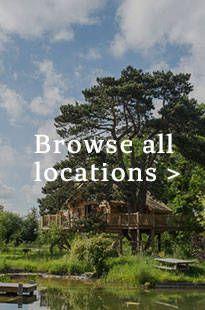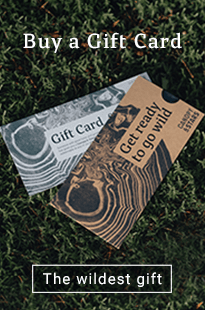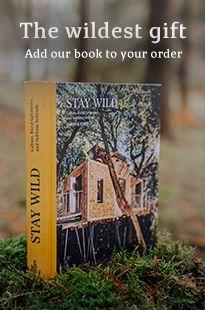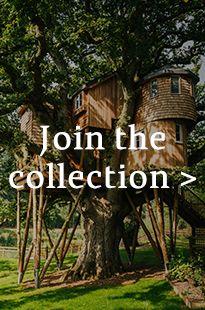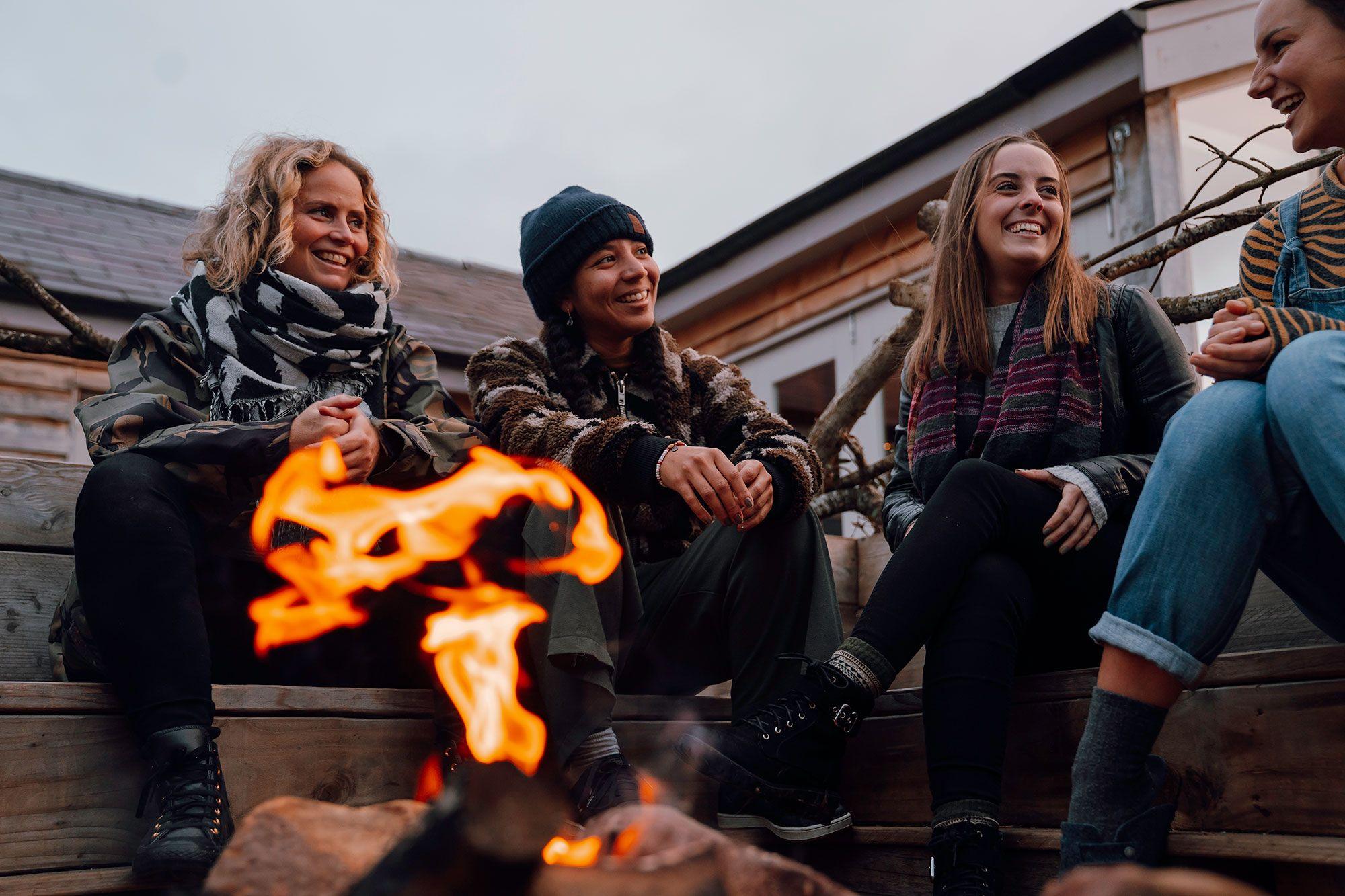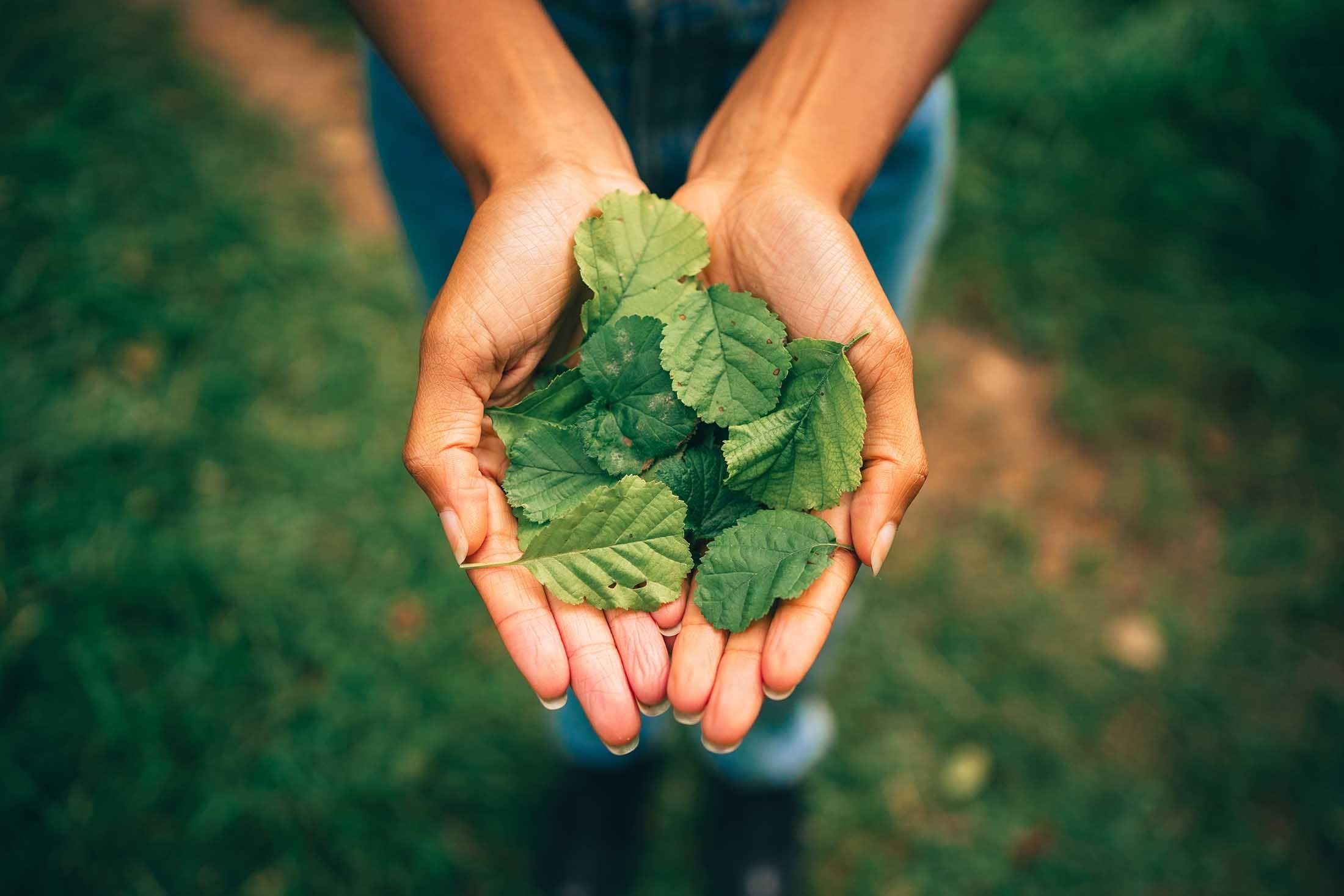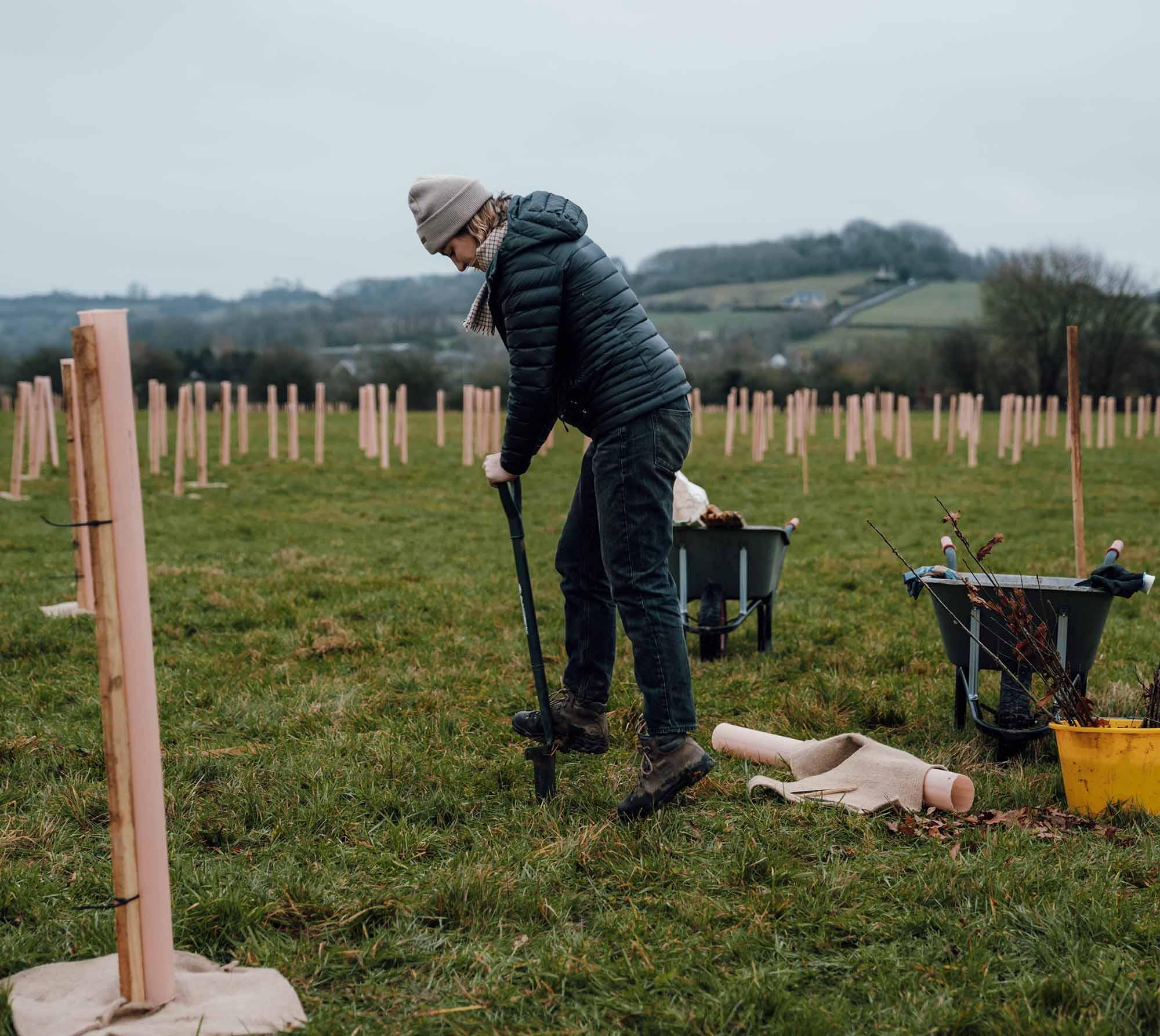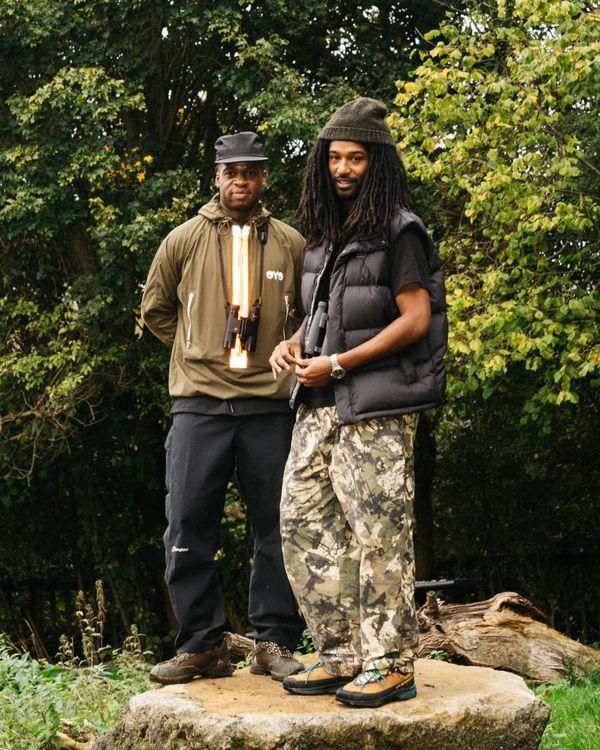
A life More Wild – Series 4, Episode 12
Flock Together
Ollie Olanipekun and Nadeem Perera on building a global movement out of a love of birds
Ollie Olanipekun and Nadeem Perera first met when Nadeem, at least according to Ollie, was trying to show off with his bird knowledge on Instagram. Years later, the platform they created, Flock Together has gone from being a birding and walking group to a global movement, and a beacon for people of colour looking to connect with the outdoors.
Yeah, so flock together is a bird watching collective for people of colour. We take out groups of people every single month, in and around London, and yeah, we alongside that we do lots of events, supporting people and giving them an easier pathway into the outdoors.
It's a lifestyle, man.
ah, yeah. (laughs)
It's a lifestyle.
I'm Chris from Canopy & Stars, and this is A Life More Wild. Join Ollie and Nadeem now on a walk through Walthamstow Wetlands, the site of their first flock together outing, as they talk about getting kicked out of cubs, having laundry stolen by monkeys, herons smacking rats around, and whether or not their pioneering work on changing the culture of the outdoors – is enough for them to be allowed to name a bird species one day.
So, we are in the Walthamstow Wetlands. It's the largest urban reservoir in Europe, if I'm not mistaken, but it's a beautiful space. We have a long-standing relationship with these guys, and we've been lucky enough to host Flock Together Academy sessions here too.
Yeah, as Nadeem says, Walthamstow Wetlands, we're standing outside the engine house, which London Wildlife Trust own in partnership with Thames Water. On the engine house now you can see a cormorant on the top. If you use your, see it? Like use the binoculars. Also, there's a magpie behind on the other part of the roof. But yeah, we're basically going to do a loop of the reservoir. Hopefully see some birds this.
This site’s special to me and Nadeem, because we both actually just lived on the banks of this space. Yeah, when we started Flock, this was our local space. So, a lot of the ideation came from long walks around this, this reservoir. So, it has a special place in our hearts, definitely.
So, the day is quite overcast, which is not the most ideal time for birds. But as Flock Together teaches people throughout these spaces, there's no such thing as bad weather for birds. So, we're going to take a loop around the reservoir on the path, and known to be here are hunting peregrine falcons, which is like the star of the show. If we get that, we're in the money. But also along the way, we might see some blackcaps, I think we've seen here. Also…kingfishers. We might be lucky to get a glimpse of one today. It's a great tit, you can probably hear the back there.
Yeah,
I think yeah.
And the helicopter.
Yeah, Big Bird.
We're out on one of the smaller bodies of water, and we've got tufted ducks swimming ahead of us. Couple of gulls. I think that's a common gull on the tree over there. And it's really calm. There's like the low hum of a helicopter, which I find is quite a nice juxtaposition, as it were, just to remind you that you're actually in the middle of the city. But what Flock Together is all about is showing you that no matter where you are in this urban jungle and this chaos, you can find moments of serenity and tranquillity, that allow you to think about where you're actually headed, or just allow you to calm and be yourself.
A lot of people, there's a misconception that London doesn't have, you know, nature and wildlife, and we're very, very fortunate to have so much green space in London, this space in particular, has, I think it's the top, the most nesting grey herons in Europe. So yeah, you know, the trees are quite thick with foliage at the moment, but usually you get to see loads of nests.
Each of us have individual journeys into the outdoors. I think for me, it came when I was in the, forced by my parents to join the Cub Scouts at around six, which was my introduction to, you know, nature, the, the great outdoors. You know, I was in there for a few years, got kicked out, and then as an adult, I realized that I'd had, that experience gave me the confidence to know how to be in the outdoors, which for a lot of us, especially our community, didn't have that opportunity. So yeah, that was my introduction.
I was always exposed to nature from going to Sri Lanka. So, I'm half Sri Lankan, half Jamaican, but raised in East London by a Sri Lankan family. So, every summer we're going back. And Sri Lanka is just one of those places you can't escape nature, if you hang washing out to dry, for example, there's like monkeys pulling it off the line ten minutes later. If you go toilet in the night, there might be a snake cutting through. So, I just came back to London, always looking for the next bit of nature, because it wasn't as obvious in East London, understandably. So, I did always have it. But I guess throughout school, I went school in the hood. Frankly, if the listeners understand what that means, an under supported area, let's call it. And so, my school experience in that area wasn't really conducive to being this nature nerd. So it wasn't until later on in my teens, like 19 years old, I picked it back up and I found green spaces like the one we're in today, that just allowed me that platform of silence, or not necessarily silence, but, away from the noise of being pushed and pulled by school or whatever other pressures there were, I could just be myself, and I just took to that and found birds along the way.
I diagnosed with ADHD not many years ago, and for me, going into nature, and especially birds, was the only time my brain could truly settle. But yeah, so in, the benefits I'd received from nature from my mental health were endless. And, you know, back in 2020, when all of us were facing up to our mental health in the lockdown, some of us, for the first time, I, by bit of a chance. You know, Nadeem slid into my DMs trying to show off with his bird knowledge when I was posting loads of birds that I'd seen on my local walk, and you know, immediately I asked, ‘How do you know all these, these, these birds’, you know, after clicking on his profile and seeing another person of colour, because up to that point, I’d never met anyone along this journey who was as, of colour, into birds. So, Nadeem replied straight away, saying, ‘I'm an avid bird watcher’, and I knew that was the moment that I've been waiting for in regards to activating an idea I had for a long time about a bird watching collective, Nadeem’s expert knowledge of birds and nature, with a missing piece to what we've now become to know as Flock Together.
I think my good looks helped as well.
(laughs) Poster boy.
We got people interested because we made it sexy. It's that simple. I know that sounds, some people might not really understand what that means, but if you want to make something appealing, then just make it sexy. I think what has happened in the conservation space, bird watching, for so long, it's been presented as this very traditional, typical activity, and we, for me and Nadeem, we've always saw it as way more exciting than that. And I guess once we had a platform like Flock Together, we just knew we had to be as most exciting with all of our copy, our comms, our imagery, everything was really about making it as exciting and sexy as possible.
And I think, yeah, that's key. I mean, I'm never going to sit here and pretend that I had any idea of how to make nature sexy, as Ollie puts it, before I met Ollie. And I think, to be honest, like without giving away too many of the secrets, I think he's sells himself short, you know, because, it was to get, he changed the cultural landscape with the execution of flock together, and I'm on the way to doing similar things, and I'm definitely learned a lot, but it's not easy to do what we've done, as many of the more established, traditional organizations have found. Many look at Flock Together and, and organizations like us and think, ‘Oh, we'll just take bits and pieces from what they do and do it’. But you can't copy authenticity. You simply can't. So, it's, I definitely agree. You have to make it sexy. You have to cross pollinate with culture. But those opportunities to actually do that need to go with people authentically from the culture.
Yeah, so I think water is a really great place to spot any birds, because typically you'll think about waterfowl like that you find in urban settings, like your mallards, your pochards, your tufted ducks, etc, and grey herons as well, which are all really interesting. So there you’ll find grey herons wading in shallow water, waiting to hunt anything that fits in their mouth, basically. We've got, like, a legendary video sent from, like, early Flock days of, heron on the canal, one of the canals in London, spinning a rat by its tail and like whacking it against the floor. I don't know if that's too graphic for our viewers, listeners, but things like that you'll find. But obviously, water supports all life, and that also includes, like, a wider diversity of birds. So, it's not uncommon to see ring neck parakeets here, which is low key like Flocks, unofficial mascot as well. You've got jay flying across. Yeah, and yeah, I think jay is in particular, really interesting because …
There’s woodpecker is…
There’s another Jay flying across…
Yeah, might be the one from this morning.
There's a parakeet flying across.
Cormorant coming in as well.
So, you can see all these birds, as if they’ve been summoned at this moment.
These birds are not typically water birds, namely the great spotted woodpecker, the jays and the parakeets. But water supports plant life, supports insect life. Lots of insects lay their eggs and nymphs will live underneath here. So, it's supports all life and attracts a wide diversity. And so, the funny thing about jays is around early autumn, towards the end of summer, you'll see them really preparing to stock up for the winter. And their favourite food is acorns. We actually seen two just fly out the oak tree over there, and they're really clever. They're members of the corvid family, which is the crow family. Although they are pinkish brown, with this electric blue patch on them, they are crows, and that means they're really intelligent, and they’re intelligent enough to bury food in preparation for winter, when food sources will be more scarce. So, they bury acorns in several locations, but they're not clever enough to remember where they've left them all. So, it's actually thought that in some parts of England, up to 33% of oak trees are grown as a result of jays having forgot where they've stashed their food. So, they are inadvertently really great gardeners too.
I think for a lot of people of colour, the outdoors has always been presented as a bit of, traditionally, this has changed over the last, you know, few years, hopefully because of Flock’s influence. But before then, it was very much like, you know, the big brands, the marketing campaigns, the TV, media, everything had, you know, didn't feature, or you could barely see faces that looked like ours. So, yeah, I think that was one of the main ones. But as I said, education, I think if you didn't go to a school which, you know, had the Duke of Edinburgh, or you didn't have parents that would take you on holidays, or you lived in an area where there was abundance of green space, but more factors to why you might not feel comfortable in these sorts of spaces.
Paradise on your doorstep. People don't realize it's here, great crested grebe, the great crested grebe, beautiful bird known, I'm gonna let Nadeem give you the facts on this one. But you know, it was nearly driven to extinction. I don't know when, but yeah, that tuft on its head was very sought after. But yeah, let Nadeem give you the facts.
So the great crested grebe is like, almost, it's like a poster boy for romance, really, because they pair monogamously, and they're really known for their dance, like a lot of grebes are, but the great crested grebe in particular, the male and female, when courting will, like, face each other and then mirror each other's movements. I think it's the male that mirrors the females’ movements, and then they stay in this synchronized dance, and they, like, stand up and go in this circle. It's really beautiful. It's something like, it's quite a great phenomenon of nature, and probably inspired a lot of like, human dances that we understand too. But then, when we're talking about what Ollie mentioned before, it was in the Victorian era of Britain that women sought their feathers for hat decorations, and that's what nearly brought them to extinction. But, yeah, I guess fashion trends changed, and humans got a bit of morality and realized actually it might be worth just letting these guys live and we can find something else to decorate our hats with.
That's a mallard just landing in and you know what? I like, I don't know how Ollie does tend to like the raptors and the big, extravagant birds. And I guess this is what makes us work so well. Like Ollie, is true to his character. Loves the big raptors.
I like theatre, I like theatre in the skies, high drama.
Yeah, drama. That's what he always says when we're watching like peregrines hunt and whatever. We've been on a few trips like that. But I am really an advocate for these everyday birds. I love pigeons, seagulls, crows, mallards. I think they're beautiful. Because what if we took that same mentality of only focusing on the spectacular people, that would leave a lot of people out. So, I am an everyday bloke. I like an everyday bird. And yeah, mallard is like, who didn't love Rosie and Jim, there was loads of mallards in it.
The most extraordinary thing we've seen birding. I guess individually, we've both got our stories, but together, I think one of the biggest standouts was whilst we were filming a series with the BBC, we were taken to the Isle of Mull, which is just off the coast of Scotland, and we saw, and I spotted some sea eagles and golden eagles, and we were able to kind of get, probably, like ten meters away on the boat we were on from them. And that, for me, was just, it is no words to describe that, you know, seeing that bird, you know, that close. It was truly, truly special.
So we've just come into a hide with a great panoramic view of what's going on around, and yeah, yeah. I think it's super peaceful. And I'm just gonna, I'm gonna take a moment to like, so there was some people in here before, and they're just on the way out, but, you know, one of the kids is like a video game in a Fortnite, t shirt on. And I think that's the future of these spaces in terms of just not specifically video games, but crossing cultures with nature, they are not mutually exclusive. And in order for people to start caring about these spaces, paying attention to these spaces, and really championing them and protecting them, you have to think more creatively. You can enjoy video games and come out into nature. You can enjoy football and come out into nature. You can enjoy whatever you like and come into nature. It doesn't have to look like this. ‘Oh my god. I've dedicated my life to studying birds, and all I do is birds, and I dress in khaki every single day’. It's cool. And we need those people, and I have lots of those people as friends. But it needs more than that.
Similar to what we've already described, that we saw already, the cormorants still at the top of the tree out here. Now you've got the herring gull flying past. Yeah, it's one of those places that you really should just take time with. You know, this really pushes you to be patient. And for someone like myself, who had an overactive brain, coming here and just forcing myself to be present. Just the benefits that came with that were just, I honestly feel it gives me a superpower, being able to be in these spaces, pause, get grounded, see the world through a fresh perspective. It was, it, I relied on that to do my job. So yeah, honestly it gave me a superpower. And I encourage anyone to just really just sit with themselves and, and see what comes back.
What was really important when we launched Flock Together was we had appeal from every corner of the globe. We had inquiries from lots of people asking, can we bring Flock to their city, their town, their country. And you know, from my work in the creative industries, I was fortunate to have quite a network across some of these key global cities. So, after year one, we looked to launch in New York. We launched a chapter there. We had a chapter in Toronto. And then Tokyo was our other biggest one, which to this day is still the biggest chapter outside of London,
Shout out the Tokyo gang, shout out the Tokyo gang.
Yeah, and this year, both myself and Nadeem, separately, had the opportunity to go out and join their walks to see the work you've, what you've created in London, mirrored in a place as far and different as Tokyo, was overwhelming. It was incredible to see that this is what we've created. Look at the reach of it. You know, we don't really, we're self-funded, so we don't. Really have the infrastructure to support some of these big ideas, which we're hoping to change, but yeah, going global and taking it to as many people as possible was a mission that we knew was important from the very start.
What you've seen there flying the long-tailed tit, great wagtail. My bad.
It looks very similar. So, the grey wagtail is, it's like probably a Robin sized bird, maybe slightly larger, but with a much longer tail. And it's called a wagtail because it's from a family of birds that literally as they're still, just bop and do this thing, and the tail goes up and down with them. But it's mostly grey on its upper parts, but it's got this really stand out yellow belly, and looks ridiculously similar to the yellow wagtail, which is natural for naming birds. I don't know who named all these birds like they're trying to mess with people, you know what? When we're talking about dreams as well, it'd be sick to name a bird.
Wow.
Do you know I'm saying it would just be sick to name a bird. Like someone, like someone – the scientific community comes together and says, You know what Flock boys, you've done enough for our culture and the game. Here's a bird, name that.
Wow. That would be incredible. Also, something like designing the flag, like or a stamp, you know, all of these things, I think Flock, we really are trying to push to be an institution. So, any of these sorts of ideas, we're so ambitious. So yeah, all of what Nadeem just said.
And you know, something else I love about, like birds in particular, is they get about so easily. That's something I loved from I was a kid, like, no passport, no lining up in an airport for five hours, just literally, I've got my wings. I'm getting up and I'm going. And what I do love is when you do travel away from home after having paid attention to the birds that are from your home, you might see the same species on the other side of the world, and it's just like you'll always find that little bit of home in nature, and it grounds you and really helps to recentre you when you're feeling a little bit directionless.
The first thing we do to advise anyone who wants to get into birding, is look up.
Very simple. You could live on a council estate. You could live in a country manner. You're just as likely to see birds. That's the honest truth. I grew up literally in a block in East London council estate, and I had pigeons nesting on my balcony. Nature is always there to remind you, you belong with it, and it belongs with you. And if you're made to feel any differently, understand that's not nature telling you that that's something else, and you need to actively work against that. Get outside.
That was a perfect end to this series of A Life More Wild, two people with a genuine passion for connecting to nature who have dedicated their lives to helping others feel the same way. We hope that this and all the stories we've heard this series, will inspire you to follow Ollie’s simple message at the end there, get outside. Just get outside and see what you find, plants, insects, rocks, birds. It really doesn't matter, as long as you're in nature. Thanks for listening to series four of A Life More Wild. We'll be back next year with more great guests to take you out into the countryside. See you there.
Keep track of all Flock Together’s work on their Instagram and follow us on ours to see behind the scenes footage from recordings and a few extra questions we asked each guest.
A Life More Wild is an 18Sixty production, brought to you by Canopy & Stars. Production by Clarissa Maycock. Our theme music is by Billie Marten.

